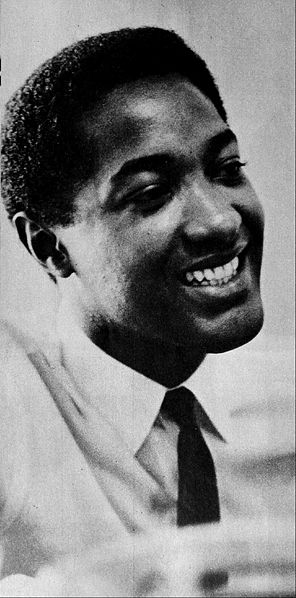Progressive soul is a type of African-American music that uses a progressive approach, particularly in the context of the soul and funk genres. It developed in the late 1960s and early 1970s through the recordings of innovative black musicians who pushed the structural and stylistic boundaries of those genres. Among their influences were musical forms that arose from rhythm and blues music's transformation into rock, such as Motown, progressive rock, psychedelic soul, and jazz fusion.
Hitsville U.S.A., Motown's former studio-headquarters and now museum, with photos of Marvin Gaye, The Supremes, and Stevie Wonder in the window display
Wonder (shown in 1973) recorded a series of innovative prog-soul albums in the 1970s.
Isaac Hayes (1973), another singer-songwriter, producer, and multi-instrumentalist in the genre
Maurice White, frontman for Earth, Wind & Fire, 1975
Soul music is a popular music genre that originated in the African-American community throughout the United States in the late 1950s and early 1960s. It has its roots in African-American gospel music and rhythm and blues. Soul music became popular for dancing and listening, where U.S. record labels such as Motown, Atlantic and Stax were influential during the Civil Rights Movement. Soul also became popular around the world, directly influencing rock music and the music of Africa. It also had a resurgence in the mid-to late 1990s with the subgenre neo-soul, which added modern production elements and influence from hip-hop.
Ray Charles pioneered the soul music genre during the 1950s by combining blues, rhythm and blues, and gospel styles
James Brown was known as the "Godfather of Soul"
Sam Cooke is acknowledged as one of soul music's "forefathers".
Solomon Burke recorded for Atlantic in the 1960s








